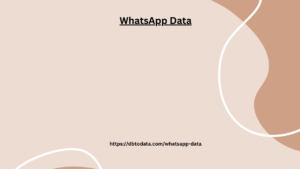Qumsiyeh said he fears that widespread environmental destruction could leave
Gaza unlivable: “We don’t have all the information, but the first information we have tells us that it will not be found again in many areas.”
Ukraine
Two years of full-scale war in Ukraine has left more than a quarter of
the country directly affected by the conflict, including about 30 percent of the country’s protected areas , according to the United Nations Development Program.
The relentless bombing
has left the country littered with tens of millions of tons of rubble, which
– as in Gaza – is mixed with explosives and other hazardous materials including asbestos.
Chemicals released from weapons will continue to affect the environment for years or
decades, including lead and other heavy metals that can settle in the soil and pollute plants.
Russian strikes also often target industrial areas across the country, according to the
Conflict and Environment Observatory (CEOBS), which has documented environmental
damage in Ukraine . The targets of the attack include a grain elevator in Luhansk,
Eastern Ukraine, an oil depot in Volyn, in the far northwest, and a port to store sunflower oil in Mykolaiv,
southern Ukraine. In addition to destruction and loss of life,
many of these attacks have resulted in fires and chemical spills, as well as potential long-term environmental damage.
In much of the country,
environmental damage has been ongoing for more than a decade:
in the Donbas, Eastern Ukraine, where fighting began in 2014, flooded coal mines threaten to spread
pollution into the surrounding waters. At least 39 coal mines have been flooded as a result of the
conflict, according to a study by the Organization for Security and Co-operation in Europe
(OSCE). Before the conflict, some of the mines were used to store toxic waste, and another was a site for nuclear explosions under the Soviet era, it noted. CEOBS .
The war also took a toll on Ukraine’s soil – which, before the war, provided crops that helped feed an estimated 400 million people around the world, according to WFP .
Plants grown in contaminated soil can contain heavy metals and other toxins.
That’s why it’s important to measure and whatsapp data map the damage, explains Olena Melynk, Associate
Professor in ecology and plant science at Sumy National Agricultural University in Ukraine, who leads an international effort to respond to the land damage of conflicts in Ukraine.
“We have to eat.
Currently based at ETH Zurich, he has enhanced file management: explore new features for folders been studying the damage caused to Ukraine’s soil since the full- War started in 2022.samples and analyzing data requires all kinds of expertise, he added: “We don’t only need soil experts – we need remote sensing experts, we need data line data analysis, statistics.”
His work involved
collecting samples from all over Ukraine for analysis at ETH and the UK Royal Agricultural University. To measure the damage in some of the worst affected areas, the researchers partnered with demining organization HALO Trust, whose experts collected 2,000 soil samples from minefields and battlefields.
Although the damage is extensive, Melnyk says the team’s analysis shows that the soil is not irreparably contaminated. He hopes it will recover in time: “Nature knows best,” he said.
Making complex
He is now working to secure funding for a major new project involving researchers from 14 countries around the world who have experience dealing with explosive remnants of war – including Second World War-era shells buried in fields in France and landmines left over from conflicts in Bosnia and Croatia.
“Our experience
is not something we can use only in Ukraine, unfortunately,” said Melnyk. More research could help build consensus on how countries should respond and repair global damage, and how scientists can work together to respond to common problems. “We should think about this not only at the level of countries, but between governments,” he said.
After the invasion
of Ukraine in February 2022, uncontrollable wheat prices showed the economic importance of Ukrainian agriculture, and how the wealth of one part of the world affects others. That global connection is natural and economic, Melnyk stressed: “This is not just a Ukrainian problem. Rivers flow wherever they like. The wind blows anywhere. These are issues that cross borders.”

